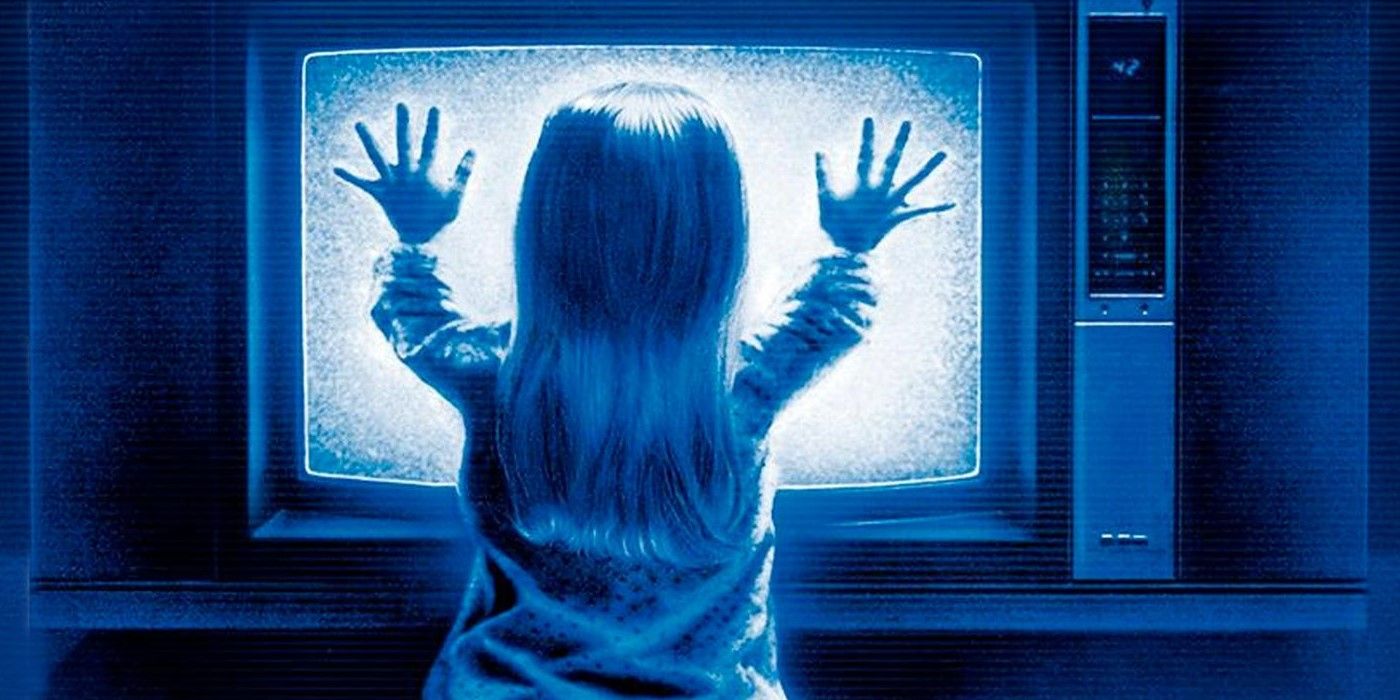
1982's Poltergeist isn't a unique film due to its content but more so its impact. Written by Steven Spielberg, the film was the director's early attempt at creating his own horror story. The film then picked up The Texas Chainsaw Massacre director, Tobe Hooper, to help bring Spielberg's haunted house story to life. While there is speculation over whether or not Hooper actually directed the film, his influence is felt in some of the film's more terrifying scenes. But no matter who really brought the story to life, it's clear that the film's message was ahead of its time and continues to resonate with its viewers decades after its release.
Poltergeist follows the Freelings, a suburban family who moves into a new housing development. At first, everything seems perfect until the Freeling's youngest daughter, Carol Anne, begins talking to people on the TV. Not long after, supernatural activity occurs in the house until it gains enough power to kidnap Carol Anne. It carries a heavy theme of family as the film follows their desperation as they try to get their daughter back.

An argument could be made that the film's main villain isn't the ghosts but the television they speak through. Throughout the film, the TV is a focal point for the family. In the '80s, as televisions became more accessible, hundreds of TV sets began to occupy homes. More often than not, families could be found huddled around a television to watch the latest episode of their favorite show rather than talking. Like in Poltergeist, the TV became a focal point that, instead of taking children to a spirit world, took in the attention of a whole family.
In a way, the film represents how things like television could potentially damage the family dynamic when used in large amounts. Part of what brings a family together is communication and sharing experiences. Not only do these types of conversations build relationships, but they also help families stay strong as a unit. While the experience that the Freelings endure is nothing short of traumatic, it also mirrors the importance of communication. The minute Carol Anne is taken, the TV is removed from the equation. Instead, the family utilizes paranormal investigators and mediums to create a line of communication to Carol Anne. While the comparison is taken more literally, it shows the importance of communication and how it can keep a family together.

In the film's climax, Carol Anne is returned to the Freelings, but the spirits aren't finished with them. Catching them when they're separated, the spirits try to take Carol Anne and now her brother, Robbie. But their mother, Diane, braves a pool of corpses to get back to her children and save them. Even when separated, the bonds and love between the family make them strong enough to brave an entire house of spirits and get to safety.
The film's final shot sums up its message perfectly with the Freelings staying the night in a motel, and before they go to bed, their father, Steven, takes the TV and puts it outside. While television and even today's electronics aren't inherently bad, too much use places a wall between family members, cutting off communication. As technology advances and offers other forms of communication, Poltergeist's message becomes even more resonant with today's audiences. The film teaches that while families sit together, it's worth it to turn off the TV and put down the phones and connect differently.
0 Comments